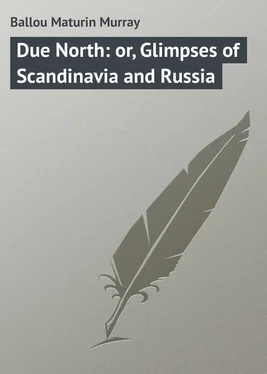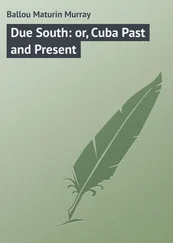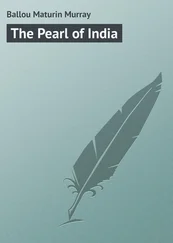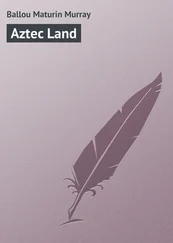Maturin Ballou - Due North - or, Glimpses of Scandinavia and Russia
Здесь есть возможность читать онлайн «Maturin Ballou - Due North - or, Glimpses of Scandinavia and Russia» — ознакомительный отрывок электронной книги совершенно бесплатно, а после прочтения отрывка купить полную версию. В некоторых случаях можно слушать аудио, скачать через торрент в формате fb2 и присутствует краткое содержание. Жанр: foreign_prose, Путешествия и география, на английском языке. Описание произведения, (предисловие) а так же отзывы посетителей доступны на портале библиотеки ЛибКат.
- Название:Due North: or, Glimpses of Scandinavia and Russia
- Автор:
- Жанр:
- Год:неизвестен
- ISBN:нет данных
- Рейтинг книги:3 / 5. Голосов: 1
-
Избранное:Добавить в избранное
- Отзывы:
-
Ваша оценка:
- 60
- 1
- 2
- 3
- 4
- 5
Due North: or, Glimpses of Scandinavia and Russia: краткое содержание, описание и аннотация
Предлагаем к чтению аннотацию, описание, краткое содержание или предисловие (зависит от того, что написал сам автор книги «Due North: or, Glimpses of Scandinavia and Russia»). Если вы не нашли необходимую информацию о книге — напишите в комментариях, мы постараемся отыскать её.
Due North: or, Glimpses of Scandinavia and Russia — читать онлайн ознакомительный отрывок
Ниже представлен текст книги, разбитый по страницам. Система сохранения места последней прочитанной страницы, позволяет с удобством читать онлайн бесплатно книгу «Due North: or, Glimpses of Scandinavia and Russia», без необходимости каждый раз заново искать на чём Вы остановились. Поставьте закладку, и сможете в любой момент перейти на страницу, на которой закончили чтение.
Интервал:
Закладка:
It was found that the people in their domestic establishments had an odd way of prefacing their family meals; namely, partaking of raw salted salmon, smoked herring, chipped beef, and pickles of various kinds, which they washed down with one or two wine-glasses of strong spirit. It seemed to be an obvious inconsistency of purpose. This ceremony takes place at a side-table just before sitting down to the regular meal, be it breakfast, luncheon, or dinner. This custom was noticed afterwards at various places in Scandinavia as well as in Russia, the practice in the latter country being universal in hotels and private houses; but it seemed obvious to us that it was only an excuse for dram-drinking as an appetizer. Bad habits are easily acquired, and soon make slaves of their incautious victims. More than one person admitted to us in Russia that without this preliminary tipple, dinner to them would have no relish.
CHAPTER IV
In approaching the capital of Norway by sea from Gottenburg, the Christiania fjord is ascended for a distance of seventy miles to its head, bordered on either side nearly the whole way by finely-wooded hills, and its surface dotted by emerald isles reflected in the deep mirror-like waters. It must be understood that a fjord is not a sound, nor is it a thoroughfare in the full sense of that word; it is a cul de sac . This of Christiania at its débouchure is just fifteen miles in width, and like many other Norwegian fjords is much deeper than the sea beyond its mouth. The entrance is marked by a powerful and lofty lighthouse on the island of Færder. The ancient citadel of Akershus, built upon a bold and rocky promontory some six hundred years ago, commands the approach to the city. In this curious old fortification are kept the regalia and national records, the tree-adorned ramparts serving as a pleasant promenade for the public. One is often reminded while sailing upon Norwegian fjords of the Swiss lake-scenery. This leading to the capital is not unlike Lake Geneva in the vicinity of Vevay and Chillon, except that it is bolder in its immediate shores and is also broader and deeper than Lake Leman. The city, which is built upon a gradual slope facing the south, is seen to good advantage from the harbor. No more appropriate spot could have been selected for the national capital by Christian IV., who founded it, and after whom it is named, than the head of this beautiful elongated bay. An ancient town named Oslo occupied the site in the middle of the eleventh century. It is the seat of the Storthing, or Parliament; and the King, whose permanent residence is at Stockholm, is expected to reside here, attended by the court, at least three months of the year. With its immediate suburbs, the population of the city is a hundred and twenty-five thousand. It should be remembered that Norway is a free and independent State, though it is under the crown of Sweden, and that the people are thoroughly democratic, having abolished all titles of nobility by enactment of the Storthing (Great Court) so early as 1821, at which time a law was also passed forbidding the King to create a new nobility. Nevertheless, the thought occurs to us here that these Northmen, who overran and conquered the British Isles, founded the very nobility there which is the present boast and pride of England. We find some problems solved in Norway which have created political strife elsewhere. Though its Church is identical with the State, unlimited toleration exists. There is also a perfect system of political representation, and while justice is open to one and all, litigation is sedulously discouraged. The meetings of the Storthing are quite independent of the King, not even requiring a writ of assemblage from him. Thus it will be seen that though nominally under despotic rule, Norway is really self-governed.
The legal code of Norway is well worthy of study, both on account of its antiquity and its admirable provisions. The old sea-kings, or free-booters as we have been accustomed to consider them, had a more advanced and civilized code than any of the people whose shores they devastated. Before the year 885 the power of the law was established over all persons of all ranks, while in the other countries of Europe the independent jurisdiction of the feudal lords defied the law until centuries later. Before the eleventh century the Scandinavian law provided for equal justice to all, established a system of weights and measures, also one for the maintenance of roads and bridges, and for the protection of women and animals, – subjects which no other European code at that time embraced. These laws were collected into one code by Magnus VII. about the year 1260. They were revised by Christian IV. in 1604, and in 1687 the present system was drawn up. So simple and compact is it that the whole is contained in a pocket volume, which is in the possession of every Norwegian family. Each law occupies but a single paragraph, and all is simple and intelligible. Speaking of these early law-makers (as well as law-breakers!) Carlyle says: "In the old Sea-Kings, what an indomitable energy! Silent, with closed lips, as I fancy them, unconscious that they were specially brave; defying the wild ocean with its monsters, and all men and things; progenitors of our Blakes and Nelsons!"
The Royal Palace of Christiania is pleasantly situated on an elevated site, the highest ground in fact within the city, surrounded by an open park containing miniature lakes, canals, and groves of charming trees. The park is called the Royal Gardens, which are always open to the public. Fronting the palace is an admirable equestrian statue in bronze of the citizen King Bernadotte, who ascended the throne of Sweden under the name of Carl Johan XIV., and it bears his consistent motto: "The people's love is my reward." The palace is a large plain edifice of brick, quadrangular in shape and painted a dull ugly yellow, with a simple portico. It was erected within the last fifty years, and looks externally like a huge cotton-factory. The Queen's apartments are on the ground floor and are very beautifully furnished, especially the White Saloon, so called. Above these are the King's apartments, embracing the usual variety of state halls, audience chambers, reception rooms and the like, plainly and appropriately furnished. The palace contains some of Tidemand's best pictures. There is also a royal villa called Oscar's Hall, situated in the immediate environs on the peninsula of Ladegaardsöen, less than three miles from the city proper. It is a Gothic structure amid the woods, eighty feet above the level of the waters of the harbor which it overlooks. Oscar Hall, with its one castellated tower, is scarcely more than a shooting-box in size, though it is dignified with the name of palace. The grounds are wild and irregular, covered mostly with a fine growth of trees, mingled with which the mountain ash was conspicuous with its clusters of berries in royal scarlet. The air was full of the fragrance of the lily-of-the-valley, which lovely little flower grows here after its own sweet will in rank profusion. There are a few choice paintings in the Hall, especially some admirable panels by Tidemand representing scenes in Norwegian peasant life, and called "The Age of Man from the cradle to the grave." There are also, we feel constrained to say, some very poor pictures on the walls of Oscar's Hall. In the garden near the villa were many familiar flowers in a thrifty condition, such as lilacs, white and scarlet honeysuckles, sweet peas, yellow tiger-lilies and peonies, besides some curious specimens of cacti and a wonderfully fragrant bed of low-growing mignonette. It was singular to see flowers and fruits which with us have each their special season, here hastening into bloom and ripeness all together.
Читать дальшеИнтервал:
Закладка:
Похожие книги на «Due North: or, Glimpses of Scandinavia and Russia»
Представляем Вашему вниманию похожие книги на «Due North: or, Glimpses of Scandinavia and Russia» списком для выбора. Мы отобрали схожую по названию и смыслу литературу в надежде предоставить читателям больше вариантов отыскать новые, интересные, ещё непрочитанные произведения.
Обсуждение, отзывы о книге «Due North: or, Glimpses of Scandinavia and Russia» и просто собственные мнения читателей. Оставьте ваши комментарии, напишите, что Вы думаете о произведении, его смысле или главных героях. Укажите что конкретно понравилось, а что нет, и почему Вы так считаете.












